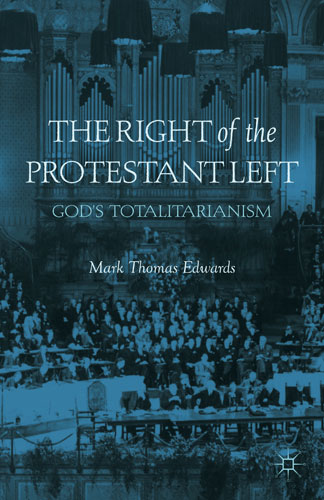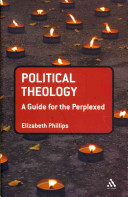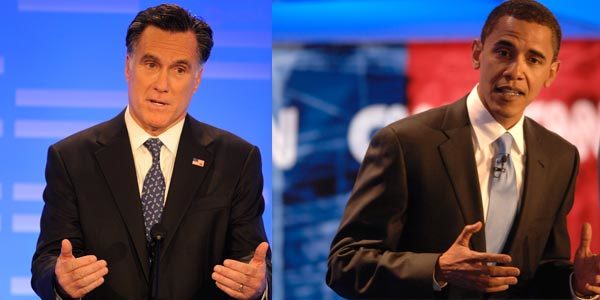
This is what is at the heart of the story. John comes preaching a message of the kingdom in the strongest possible terms—You brood of vipers! As part of his message, to which people seem to be responding, is that they need to “bear fruit worthy of repentance.” That is, don’t just sit there saying you did wrong. Get up and show that you understand by doing something different. And of all the people who might have grasped this message, low and behold, its those nasty tax collectors, the worst people imaginable, who come and ask what they should do to show they really mean what they say about having been transformed. Which is to say, that the narrative presents the very embodiment of a social outsider, confronting the epitome of the empire in the form of the tax collector, who is fundamentally transformed by the encounter.

The Right of the Protestant Left: God’s Totalitarianism (Palgrave Macmillan, 2012) is really three books rolled into one, with three separate but overlapping arguments. Because of this, it can be hard to follow the different strands. I thought the most helpful way to introduce my book to readers would be to unpack each of the arguments. Before I begin, though, let me define briefly my subjects, the “old ecumenical Protestant left.” Like the old left it was affiliated with, the old Protestant left has often been reduced to a few of its leaders, namely Reinhold Niebuhr and Paul Tillich; the community orientation of the movement has thereby been lost…
In Plato’s Theaetetus Protagoras insisted that one should not persuade the other of what is true in relation to what is false because no one has ever succeeded in doing so and most of all because truth in itself is not the issue in political discussions, debates, and deliberations. But there is one thing that Protagoras wanted to persuade people about, namely improvement. From the point of view of ancient Greek politics, this is all that can be done: We can strive to achieve a better situation, which inevitably will require further improvement. But if nothing but improvements can be hoped for, then “truth” or the “good” have no place in this progress because they presuppose final achievements, accomplishments, and results. The point of Protagoras is that one should never persuade people of what is good—only of the need for improvement…

God chose to speak through a wild man known as John the Baptizer who dressed in animal skins, ate wild honey, and probably had the most unruly hair. The biblical description of his dress and style resembled the prophet Elijah found early in Second Kings. Why then do we ignore God’s trend of speaking through those who diverge from the status quo?

Many people have an immediate, visceral response to the word ‘ecumenical’. For some, it is a byword for the unity and cooperation which is most needed, necessary, and important for the church today. For others, it is a byword for a tired project which is showing its age along with those who entered into it with fervor in the 1960s and 1970s, and are still clinging to it along with outmoded theologies and expectations of unity. For the first kind of person, teaching political theology in an ecumenical context may be looked upon as a welcomed opportunity and important responsibility, while the second sort of person may shudder at the idea of the sort of bland, common-denominator teaching which can be found in some ecumenical contexts. How can the teaching of political theology in ecumenical contexts avoid this blandness while also not being too optimistic about ecumenical political theology?
Hope is not drawn from the world-that-is. Hope is grounded in perceptions of the world-that-ought-to-be. It arises from the power of the world-that-ought-to-be. For Christians, the world-that-ought-to-be is the eschatological Kingdom of God. It is expected in the future, in God’s time. But, it is also in the present, which is God’s time. The Kingdom is a perpetual possibility, even as its realization must be perpetually deferred in its fullness.
We have spent now four posts tracing the historical development of Protestant two-kingdoms theology, and its influence on early modern political thought. This has all been an attempt to vindicate the claim, advanced in the first installment of this series, that the wider world of political theology has good reason to attend to the disputes over this doctrine that have heretofore been the province only of a characteristically combative subgroup of the American Reformed. Has it been vindicated?

A new conference, The American Election 2012: Contexts and Consequences, has been organized for the purpose of analyzing both the strategic and tactical choices that went into the successes and failures of the 2012 presidential and congressional campaigns, and the purpose of discussing what the outcomes of the election portend for the future of American politics, governmental policies, and American culture. The conference will be hosted by Saint Anselm College and its New Hampshire Institute of Politics, and will be held March 15-16. The keynote speaker for the conference will be Dante Chinni, journalist and author of Our Patchwork Nation: The Surprising Truth About The Real America. The website for the conference is…